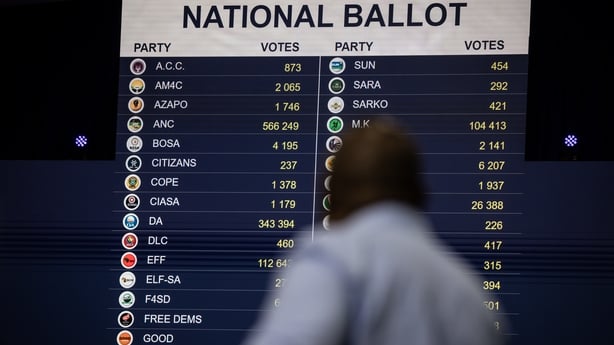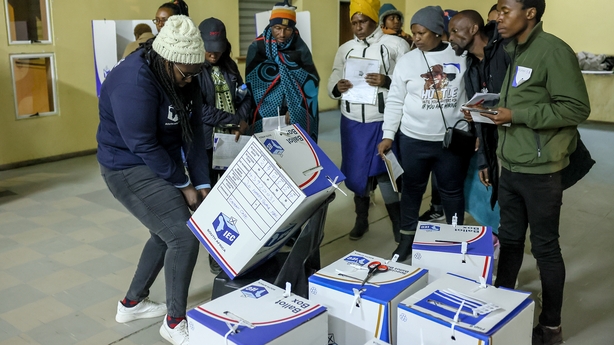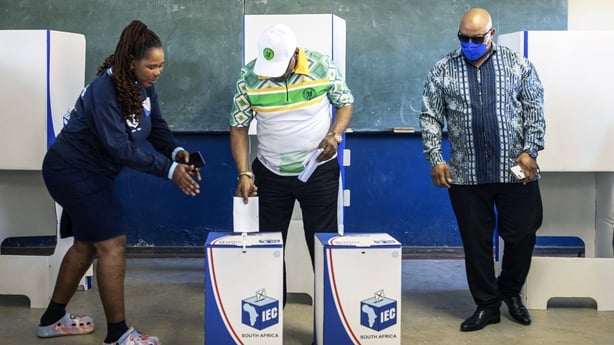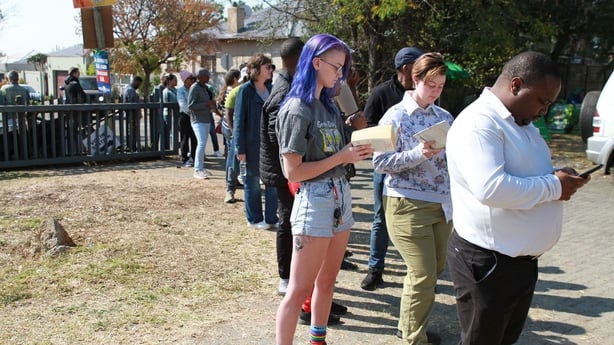The African National Congress appeared poised to lose a parliamentary majority it has held for 30 years, partial election results indicated, as South African voters punished the former liberation movement after years of national decline.
While the party of Nelson Mandela looked likely to remain the largest political force, such an outcome would push it into a coalition with other parties, the first time it would share power in the country's post-apartheid history.
With results in from 29.5% of polling stations, the ANC's share of the vote in yesterday's election stood at 42.5%. It won 57.5% of votes in the previous election in 2019.

"The ANC might have to consider forming an alliance with one of its major rivals in order to maintain its hold on power," said Andrew Bahlmann, a senior executive at mergers and acquisitions advisory firm Deal Leaders International.
Which party it might choose remained unclear.
The partial results released by the electoral commission put the pro-business Democratic Alliance (DA) on 25.1%, and the Marxist Economic Freedom Fighters (EFF) party on 9%.
uMkhonto we Sizwe (MK), a new party led by former president Jacob Zuma, was at 8.6% and eating into ANC support, particularly in KwaZulu-Natal - Mr Zuma's home province and a traditional stronghold of the ruling party.
"MK is the reason why the ANC is getting less than 50%," Oscar Van Heerden, Senior Research Fellow at the Centre for African Diplomacy and Leadership at the University of Johannesburg, told Reuters.
The ANC has won every national election since a landmark 1994 vote ended white minority rule and brought Nelson Mandela to power.

However, the last decade has seen the ANC wracked by repeated corruption scandals while South Africans have watched the economy stagnate, unemployment and poverty climb and infrastructure crumble, leading to regular power outages.
Pollsters and two of the country's three main broadcasters predicted that the final results would confirm that the ANC had lost its majority.
Under South Africa's proportional voting system, parties' shares of the vote determine the number of seats they get in the National Assembly, which then elects the next president.
That could still be the party's leader and incumbent President Cyril Ramaphosa. However, an embarrassing showing at the polls risks fuelling a leadership challenge.
'Disaster for South Africa'
If current trends continue, the ANC would likely struggle to cobble together a majority through alliances with small parties, raising speculation over which of its big rivals it might tie up with.
"(These results) give the ANC the option of partnering with the market-friendly DA," said Mr Bahlmann.
Investors and the business community have voiced concern over the prospect of a coalition with the EFF, which is calling for the seizure of white-owned land and the nationalisation of mines and banks, or with Mr Zuma's MK.

The ANC shares some policy stances with the EFF and MK. Both Mr Zuma and EFF leader Julius Malema are former ANC members who fell out with its leadership.
The DA has vowed to oust the ANC, though its leader John Steenhuisen has not ruled out a partnership if it would prevent what he has called a "doomsday coalition" with the ANC bringing the EFF or MK into government.
"We are very committed to preventing that outcome," Helen Zille, chairperson of the DA's federal council, told Reuters.
"That would spook investors, it would tank the economy it would be a disaster for South Africa."
However, she added that the DA was not in talks with any other parties to form a coalition.
Speaking to Reuters, ANC Deputy Secretary-General Nomvula Mokonyane said she had been surprised by the results in KwaZulu-Natal, where MK was running well ahead of the ANC.
"It's still early, we want to give ourselves the space to reflect. The race is not yet over," she said.

In contrast, the MK party adopted a triumphant tone, slamming what it called "Ramaphosa's dismal regime" and setting out its own policy stall, which echoed some of the goals the ANC pursued during Mr Zuma's term as president.
Mr Zuma was forced to quit as president in 2018 after a string of scandals and has since thrown his weight behind MK, named after the ANC's armed wing from the apartheid era.
By law, the electoral commission has seven days to declare full results, but in practice it is usually faster than that.
The new parliament must convene within 14 days of final results being declared and its first act must be to elect the nation's president.

